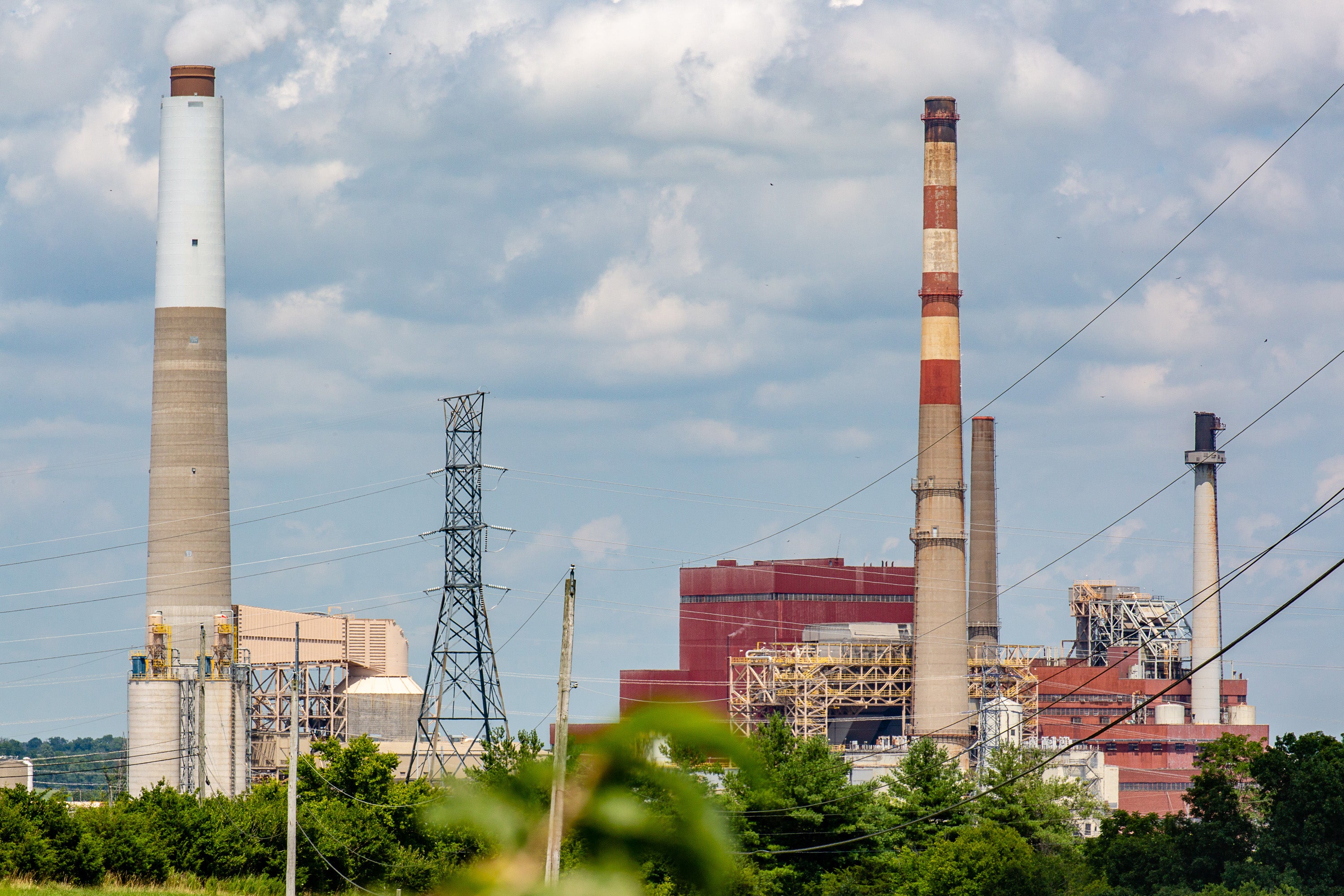Lawsuits still ongoing against KU, state to get answers
Published 10:02 pm Friday, July 5, 2019

- The E.W. Brown power plant in Mercer County is seen from Curdsville Road Friday afternoon. Pollution from coal ash ponds at the plant has made its way into nearby Herrington Lake, but not in amounts that cause any significant impacts, according to a study completed last month. (Photo by Ben Kleppinger)
In 2017, Earthjustice filed a suit on behalf of the Kentucky Waterways Alliance and the Sierra Club demanding Kentucky Utilities clean up pollution the groups say are a direct result of its coal ash auxiliaries, one which flows into Curds Inlet, near Dix Dam.
It provided a peer-reviewed study commissioned through a veteran fishery biologist, who previously worked for the federal government in Fish and Wildlife, which was eventually published in an international scientific journal. Dr. Dennis Lemly is one of the country’s first biologists who connected selenium to energy waste, and has been studying its effects since the late ‘70s.
His report included photos of head and spine deformities in fish of the area, which was dismissed as political posturing by KU because it claimed Lemley’s results were “different from what other testing has found.”
But that “other testing” has never been released. On Aug. 23, Earthjustice sued the Kentucky Energy and Environmental Cabinet for withholding more than 180 records it says are related to those studies.
Since a June 4th date in Franklin Circuit Court concerning release of the records, attorney Ben Locke with Earthjustice says the judge has issued an order that “some additional documents” be released..
Those documents include a “privilege log,” which describes all the documents withheld and explains “the reason they’re not disclosing them to us,” Locke says.
Kentucky open records law requires public agency’s provide a reason for withholding records from release and cite an exception to the law that allows the records to be withheld.
“The cabinet came to court and made the offer to do that, and we will get to depose people from the cabinet,” Locke says.
That’s movement for the case, however, “we would’ve expected this to happen a long time ago,” he says. “This has been going on for years. But we support the judge’s decision to gather more facts before making the final decision.”
The cabinet has until July 10 to hand over the documents it will be disclosing, Locke says, and until July 30 to produce the privilege log. Earthjustice has a deadline of Aug. 30 to conduct depositions with cabinet people. After that, a supplemental hearing will be scheduled in the open records suit.
“It’s concerning that you have to sue the state agency and take them to court in order to get open records information, that any other person can get by sending a letter and asking for it,” Locke says.
The suit against KU is scheduled to go to trial in the fall of 2020, according to Thomas Cmar, lead attorney on the case. U.S. District Judge Danny Reeves had ruled in 2017 that his court had no authority in the case. The suit’s complaints were based on the Federal Clean Water Act and the Resource Conservation and Recovery Act; Reeves’ ruling said “Congress determined that regulation of groundwater should be left to the states.”
But an appellate court reinstated the case in September of 2018.
Earthjustice has argued that after two rounds of intense testing, it is widely known that yes — there is pollution in the area of the lake near the power plant. And the latest Ramboll study paid for by Kentucky Utilities shows there is pollution, as well. So residents involved in the suit are now asking what the company is going to do about it, and how the state plans to hold it accountable.
“As of now, we are non-confrontational,” lake resident Julie Pease previously said. She’s a member of a working group from Kentuckians for the Commonwealth’s (KFTC) Wilderness Trace Chapter, focused on getting some answers about clean-up efforts. They will be hand-delivering a petition to KU and possibly the state cabinet, asking for a public meeting with the two entities so residents may be informed of what efforts are being taken, “not just more studies,” she said.
“Right now. You’re our neighbor, you say you want to be a good neighbor. Please, be that good neighbor.”






